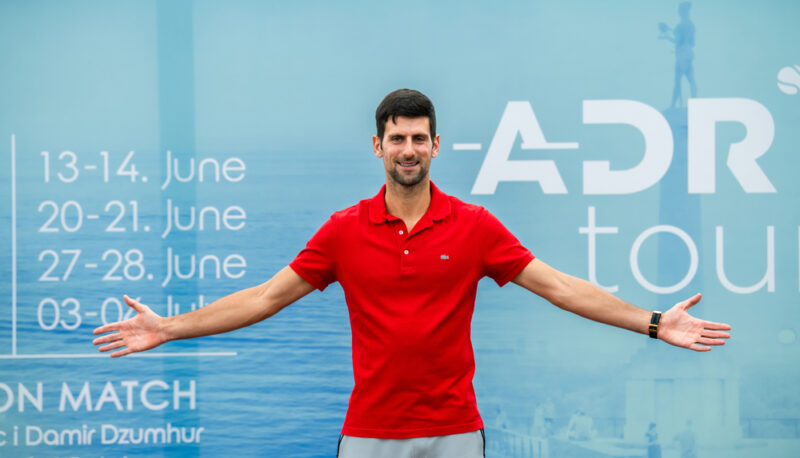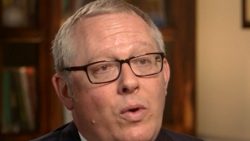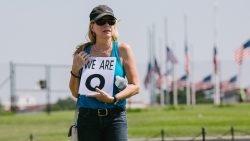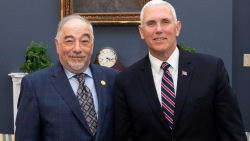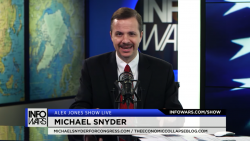Analysis
Kelly Slater, the 11-time world surfing champion widely considered the greatest of all time, is skeptical about the necessity of the COVID-19 vaccine.
Speaking to his formidable 2.7 million followers on Instagram, the 49-year-old legend quoted British scientist Michael Yeadon, a former VP of Pfizer who has since become an anti-vax hero after spreading false claims about the vaccine. Slater posted an excerpt from an article Yeadon wrote for the Daily Sceptic last year, stating “there is absolutely no need for vaccines to extinguish the pandemic. I’ve never heard such nonsense talked about vaccines. You do not vaccinate people who aren’t at risk from a disease. You also don’t set about planning to vaccinate millions of fit and healthy people with a vaccine that hasn’t been extensively tested on human subjects.”
“Something to ponder,” Slater wrote on Instagram beneath the quoted excerpt, adding, “But I’m no epidemiologist.”
Slater, who previously stated that he would likely “wait for the antibodies [to] naturally [occur] if I get Covid,” has since been criticized on social media for his stance on the vaccine. Taking a defensive approach with commenters, Slater called his critics “triggered bitchy people” before claiming he was “not anti vax” but was against “mandating medical procedures.”
The surfing legend is not alone among athletes in his vaccine skepticism. Fellow surfer Taj Burrow is entirely against vaccinations, while World No. 1 Gabriel Medina stirred outrage from fans after revealing during a Twitch stream that he had pulled out of the Outerknown Tahiti Pro surf event because he was unvaccinated; he has since released a statement apologizing for his “mistake” and insisting that “vaccines save lives, guys!”
Though surfing is far from the only sport where anti-vaccine obstinance remains a significant issue, it underscores a growing concern that anti-vax athletes help fuel vaccine hesitancy among gullible sports fans and, in turn, the general population.
In an attempt to combat low vaccination rates, the National Football League recently instituted new rules aimed at incentivizing players to get vaccinated and penalizing those who do not, which triggered a backlash from a vocal minority of athletes and coaches who oppose the vaccine. While the organization revealed that nearly 90 percent of players had received at least one vaccine dose, an unvaccinated minority continues to oppose the new rules and have taken to social media to voice their displeasure.
“Freedom?” Arizona Cardinals wide receiver DeAndre Hopkins tweeted after deleting an earlier tweet hinting that the NFL’s mandate had him questioning his future with the organization.
Other vocal critics of the COVID-19 vaccine include Buffalo Bills wide receiver Cole Beasley, who stated at a recent press conference that he was “pro-choice” with regards to the vaccine, and released a rap song with the lyric “ain’t no vaccination for me…” Other stars players such as Kirk Cousins, Carson Wentz, and Dak Prescott refused to disclose their vaccination status, claiming that it violates their Health Insurance Portability and Accountability Act rights—incorrectly invoking the 1996 medical privacy law. Baltimore Ravens quarterback Lamar Jackson remained noncommittal on the vaccine despite contracting COVID-19 twice. Meanwhile, Minnesota Vikings offensive line coach Rick Dennison left his position after refusing to get vaccinated.
Tennis world No. 1 Novak Djokovic has also been vocal about his opposition of the COVID-19 vaccine. In April 2020, Djokovic revealed that he “opposed vaccination” and “wouldn’t want to be forced by someone to take a vaccine.” The tennis star went on to host an ill-fated charity exhibition tour in Serbia and Croatia in June, where several of the athletes contracted COVID-19, including Djokovic and his wife.
Mixed martial arts is another sport filled with notable athletes resisting vaccinations. Michael Chandler, who competes in the lightweight division of the Ultimate Fighting Championship, revealed that his upcoming fight at Madison Square Garden in New York City is in jeopardy due to the city’s new vaccination mandates which require customers to show proof of vaccination to enter restaurants, gyms, and indoor entertainment venues. Chandler added that he would not be vaccinated at that point, as he is waiting until the vaccine is fully approved by the U.S. Food and Drug Administration. The FDA plans to give its final approval for the Pfizer vaccine by September 2021.
While organizations such as the NFL have taken steps to incentivize their athletes to get vaccinated, the UFC has taken a contrasting approach. According to UFC President Dana White, the world’s leading MMA organization has no plans to instate vaccine mandates.
“I would never tell another human being what to do with their body,” White told Canadian sports network TSN. “If you want to get vaccinated, that’s up to you. That’s your choice. You’re never gonna hear me say I’m gonna force people to get vaccinated. Never gonna happen.”
White, a longtime friend of Donald Trump who campaigned for the former president during the 2016 and 2020 presidential elections, went so far as to denounce efforts to mandate vaccinations. “They’re telling you in New York you can’t go into a restaurant or a gym unless you’re vaccinated and can prove it and things like that. Some people are getting fired if they don’t get vaccinated. Yeah, that’s not gonna happen here,” White said.
Among the worst offenders is former Major League Baseball star Aubrey Huff, who has long used his social media platforms to promote anti-vax conspiracy theories and fear-mongering. In June 2021, Huff claimed he would “rather die of the coronavirus than wear a mask and live in fear.” His Twitter account was suspended on Monday, August 9.
It is also worth noting that at least 100 of the 613 U.S. athletes who participated at the Tokyo Olympics were unvaccinated.
On July 27, 2021, the Centers for Disease Control and Prevention released updated guidelines on the necessity of “increasing COVID-19 vaccination coverage” due to the fact that the Delta variant of COVID-19 is nearly twice as contagious as previous variants. It also added that the “greatest risk of transmission is among unvaccinated people who are much more likely to contract, and therefore transmit the virus.” Vaccinated people may experience “breakthrough cases” and can spread the virus to others, though they appear to be infectious for a shorter period.
The Delta variant is the predominant strain of the virus in the United States, representing more than 58 percent of all new cases across the country, even though the first case of that variant in the U.S. was mere months ago in March 2021. The areas most affected by the Delta variant also happen to be the areas with low vaccination rates and limited mandates regarding masks and social distancing. The higher the rate of vaccination, the fewer these outbreaks will be.
Even though athletes are not solely to blame for the low vaccination rate in the U.S., their overall hesitancy, and in some cases their deranged conspiracy theories, have an effect on the average sports fan. Whether warranted or not, athletes are viewed as role models in society, so their views and opinions tend to have ripple effects beyond sports. And while athletes continue to defend their vaccine obstinance, what they fail to realize is that there are ethical implications in choosing not to get vaccinated. By shunning the vaccine, athletes risk transmitting the virus to others, especially vulnerable groups such as the immunocompromised and those unable to take the vaccine due to medical reasons.
Instead of adding to the polarization of the vaccine debate, athletes might follow in the footsteps of tennis star Andy Murray, the former Wimbledon and U.S. Open champion who took to social media to share the news that he had received his first dose of the vaccine in June 2021.
“That first jab feeling!” read the caption beneath Murray’s smiling face.




